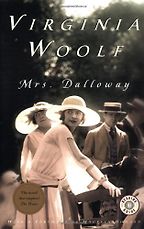First Wave Feminist Books (and earlier)
Last updated: June 25, 2023
A Vindication of the Rights of Men and A Vindication of the Rights of Woman
by Mary Wollstonecraft, edited by Sylvana Tomaselli
“She writes what I think is an extraordinary work. It’s written in about two weeks. At first, it’s anonymous. The second edition bears her name. It’s a mix of all kinds of things but attacking Burke is her starting point. She attacks him for being disrespectful to a well-respected minister. The most surprising thing happens in that text: because of Burke’s critique of the appropriation of Church property, she latches onto property. She focuses on marriage and how society’s obsession with property and its accumulation distorts the relationship between parents and children, and between men and women.” Read more...
The Best Mary Wollstonecraft Books
Sylvana Tomaselli, Historian
“It’s one of the saddest books I’ve ever read. I could really identify with Clarissa, this empty, poor person who is going out to find some flowers for a party. At the same moment, we are following her out into the beautiful morning as the story starts. It’s clear very soon that Clarissa is a woman who has lost her soul among all the duties and conventions of a boring marriage. That loss is so overwhelming and confusing that she loses contact even with her own body. She describes feeling young, but at the same time really old…At the time I read it I was married, and maybe I knew what was coming. I read it again recently and it felt so accurate, even though things have of course changed. We have legislation against gender discrimination, the right to vote, free abortion, daycare – at least in Sweden we do. But even so, it felt modern because family conservatism as the norm is stronger than it’s ever been.” Read more...
Maria Sveland, Journalist
“This was a historic breakthrough in biblical scholarship. Elizabeth Cady Stanton, the great women’s rights activist, was the main editor. It’s a commentary on the Bible from a feminist perspective, published over a century ago and produced by women biblical scholars of the time. Its contributors were a small voice in the academic world and this brought their voices together. More than any other text on the oppression of women, this work had a profound influence. The contributors re-read the biblical texts in ways that detach them from sexist and patriarchal interpretation. For example, Eve is seen as the mother of wisdom. She’s the first to be curious because, as the text says, she saw that the apple was good to eat and would make her wise. Adam, of course, just takes and eats: he doesn’t need a reason. I discovered this Bible while working on the book of Esther. The way these women read that text, especially the character of Vashti, is quite profound. Vashti is the queen who Esther replaces. She’s essentially described as the first feminist, refusing to be ogled by the king and his friends at their big drinking party. She exposes their patriarchal insecurities. The Woman’s Bible tackles many other passages, such as the one that says women should be silent in church, and undermines their use. In the New Testament, Paul interacts with Junia, an apostle in the church, and a couple, Priscilla and Aquila, who were Christian missionaries. The Bible acknowledges that authoritative leaders of the early church included women. A hundred years on, it’s still well worth reading.” Read more...
The Best Versions of the Bible
Timothy Beal, Theologians & Historians of Religion


